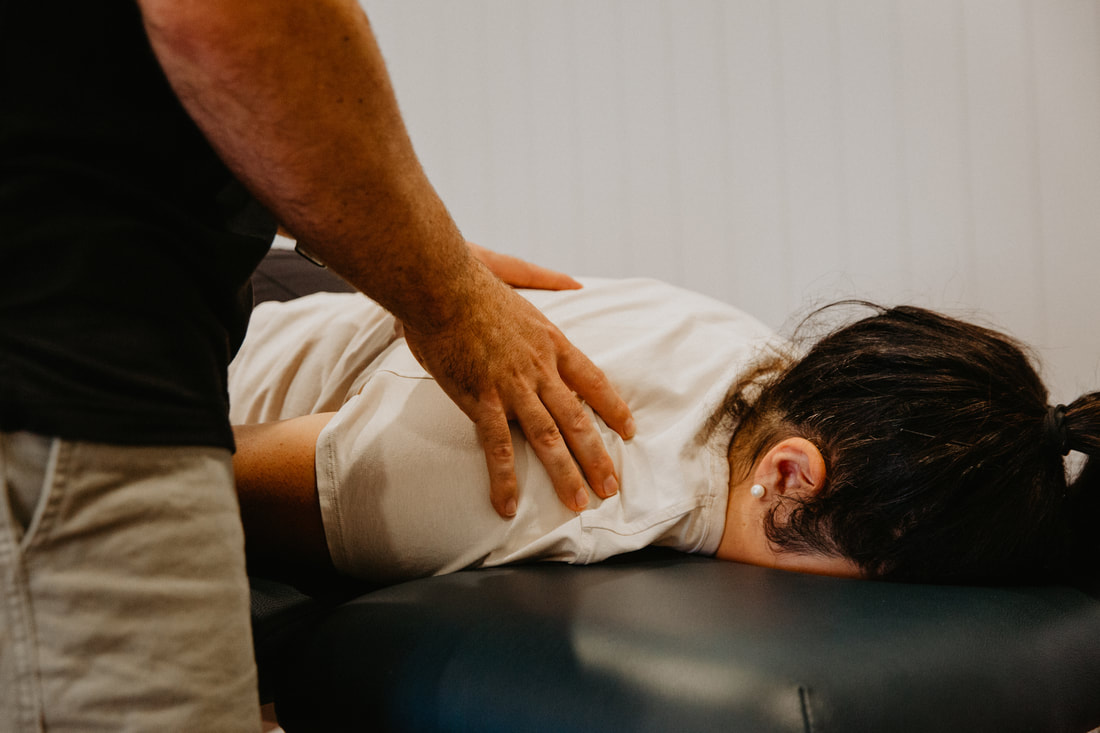Disc herniation physiotherapy Brisbane southside.
What is a Disc Herniation?
A disc herniation, also known incorrectly as a slipped disc or a ruptured disc, occurs when the soft tissue inside the spinal disc pushes through a crack or a tear in the outer layer of the disc. This condition can cause significant pain and discomfort, and can lead to nerve damage if left untreated.
What are the symptoms of a herniated disc?
The symptoms of a herniated disc can vary depending on the location and severity of the injury. Some common symptoms of a herniated disc may include:
It is important to note that not everyone with a herniated disc will experience symptoms. However, if you are experiencing any of the above symptoms or suspect that you may have a herniated disc, it is essential to seek medical attention to receive an accurate diagnosis and appropriate treatment.
How is a Herniated Disc Diagnosed?
A herniated disc is typically diagnosed through a physical examination and medical imaging, such as an MRI or a CT scan. During the physical exam, a healthcare professional may ask about symptoms, perform reflex tests, and evaluate range of motion. Medical imaging can help to confirm the diagnosis and determine the severity of the herniation.
How can Physiotherapy Help after Disc Injury Diagnosis?
Physiotherapy can be an effective treatment option for patients with a disc herniation. A physiotherapist can design a personalised treatment plan that may include exercises to improve mobility and flexibility, as well as targeted strengthening exercises to support the spine. Manual therapy techniques, such as massage and joint mobilisation, may also be used to alleviate pain and improve function.
In addition to exercise and manual therapy, a physiotherapist may recommend lifestyle modifications, such as changes to posture and ergonomics, that can help to prevent further injury and reduce the risk of future herniations.
How can Clinical Pilates Help with Disc Injuries?
Clinical Pilates is a specialised form of Pilates that is tailored to address specific injuries and conditions, such as disc herniations. Clinical Pilates exercises focus on improving core strength, stability, and flexibility, which can help to alleviate pain and prevent further injury.
Clinical Pilates exercises are typically performed under the guidance of a qualified physiotherapist or Pilates instructor, who can modify exercises to ensure that they are safe and effective for the individual. Clinical Pilates may be used in combination with other physiotherapy treatments to provide a comprehensive approach to disc herniation management.
Our physiotherapists are highly trained in many types of back pain including disc herniation. We know that a functioning back is vital to perform our activities of daily living and our physiotherapists can help you get back into moving pain free.
Call us on 07 3706 3407 or email [email protected] for a booking or to see if our exercise programs might be right for you!
A disc herniation, also known incorrectly as a slipped disc or a ruptured disc, occurs when the soft tissue inside the spinal disc pushes through a crack or a tear in the outer layer of the disc. This condition can cause significant pain and discomfort, and can lead to nerve damage if left untreated.
What are the symptoms of a herniated disc?
The symptoms of a herniated disc can vary depending on the location and severity of the injury. Some common symptoms of a herniated disc may include:
- Pain: The most common symptom of a herniated disc is pain that may be felt in the back, neck, arms, or legs. The pain may be sharp, dull, or burning and can vary in intensity.
- Numbness or Tingling: A herniated disc can cause numbness or tingling sensations in the affected area, which may indicate nerve damage.
- Weakness: A herniated disc can cause weakness in the muscles that are served by the affected nerve, which can make it difficult to perform certain activities.
- Loss of Reflexes: A herniated disc can affect reflexes, which can be tested by a healthcare professional during a physical exam.
- Changes in Bowel or Bladder Function: In rare cases, a herniated disc can cause changes in bowel or bladder function, which may indicate a medical emergency and require immediate medical attention.
It is important to note that not everyone with a herniated disc will experience symptoms. However, if you are experiencing any of the above symptoms or suspect that you may have a herniated disc, it is essential to seek medical attention to receive an accurate diagnosis and appropriate treatment.
How is a Herniated Disc Diagnosed?
A herniated disc is typically diagnosed through a physical examination and medical imaging, such as an MRI or a CT scan. During the physical exam, a healthcare professional may ask about symptoms, perform reflex tests, and evaluate range of motion. Medical imaging can help to confirm the diagnosis and determine the severity of the herniation.
How can Physiotherapy Help after Disc Injury Diagnosis?
Physiotherapy can be an effective treatment option for patients with a disc herniation. A physiotherapist can design a personalised treatment plan that may include exercises to improve mobility and flexibility, as well as targeted strengthening exercises to support the spine. Manual therapy techniques, such as massage and joint mobilisation, may also be used to alleviate pain and improve function.
In addition to exercise and manual therapy, a physiotherapist may recommend lifestyle modifications, such as changes to posture and ergonomics, that can help to prevent further injury and reduce the risk of future herniations.
How can Clinical Pilates Help with Disc Injuries?
Clinical Pilates is a specialised form of Pilates that is tailored to address specific injuries and conditions, such as disc herniations. Clinical Pilates exercises focus on improving core strength, stability, and flexibility, which can help to alleviate pain and prevent further injury.
Clinical Pilates exercises are typically performed under the guidance of a qualified physiotherapist or Pilates instructor, who can modify exercises to ensure that they are safe and effective for the individual. Clinical Pilates may be used in combination with other physiotherapy treatments to provide a comprehensive approach to disc herniation management.
Our physiotherapists are highly trained in many types of back pain including disc herniation. We know that a functioning back is vital to perform our activities of daily living and our physiotherapists can help you get back into moving pain free.
Call us on 07 3706 3407 or email [email protected] for a booking or to see if our exercise programs might be right for you!
Who to book in with:
Yulia Khasyanova
|
Mauricio Bara
|
Monica Hanna
|



